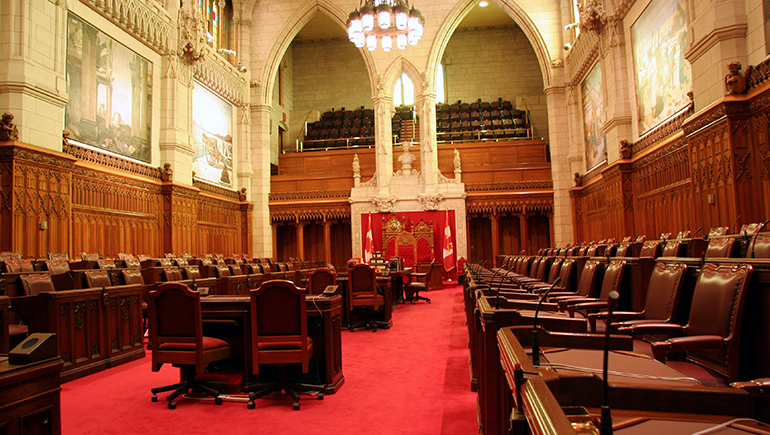Housing was the focus of Federal Budget 2022
At a glance (5 minute read)
- The Federal Budget 2022 was housing-focused, with a significant amount of funding going towards quickly creating new, and diverse housing.
- The government plans to restrict foreign buyers and add a flipping tax on homes sold within 12 months of purchase.
- First-time buyers will also get tax credit and access to a new, tax-free First Home Savings Account.

During the 2021 federal election campaign, housing was a key issue. Finance Minister Chrystia Freeland followed through on Liberal party election promises, making housing a major focus of the April 7, 2022 Federal Budget.
The government plans to address housing affordability by adopting policies in three categories: building, saving and anti-flipping/foreign investment.
Building
An additional $10 billion to address the lack of housing supply by doubling housing construction by 2032 to 400,000 units from 200,000 units. Includes:
- A new Housing Accelerator Fund: $4 billion over five years, starting in 2022-23 to support municipalities for programs such per-door incentives or up-front funding for planning and delivery processes that speed up housing development.
- Extension of the Rapid Housing Initiative: $1.5 billion over two years, starting in 2022-23 to create 6,000+ new affordable housing units, with 25 per cent of funding going towards women-focused housing projects.
- A new Multigenerational Home Renovation Tax Credit: up to $7,500 to support construction of a secondary suite for a senior or an adult with a disability, starting in 2023.
Saving
- A new Tax-Free First Home Savings Account: first-time home buyers can save up to $40,000 tax-free. Like RRSPs, contributions are tax-deductible. Withdrawals to buy a first home, including investment income, are non-taxable, like a TFSA. Tax-free in, tax-free out.
- First-Time Home Buyers’ Tax Credit: doubles the amount to $10,000, providing up to $1,500 in direct support to home buyers, applying to homes bought on or after January 1, 2022.
- Home Accessibility Tax Credit: double the qualifying expense limit of the to $20,000 for 2022 and subsequent tax years. This tax credit of up to $3,000 is an increase from the previous tax credit of up to $1,500 for important accessibility renovations or alterations.
Foreign investment
- Two-year ban on foreign ownership: applies to foreigners buying residential, non-recreational real estate including detached homes and stratas. Exemptions include permanent residents, foreign workers, foreigners buying their primary residence, and students.
Anti-flipping
- Flipping tax: anyone buying a property and selling it in less than 12 months will be taxed on their profits as business income. Applies to residential properties sold on/after January 1, 2023. Exceptions: Canadians selling their home due to death, disability, divorce, the birth of a child, or a new job.
- Review of housing as an asset class: to better understand the role of large corporate players in the market and the impact on renters and homeowners, the government plans to look at options and tools, including potential changes to the tax treatment of large corporations investing in residential real estate.
Affordable housing
- $1 billion for the construction of affordable housing units; and
- $2.9 billion in loans and funding for co-op housing to accelerate the creation of up to 4,300 new units and the repair of up to 17,800 units.
Protecting Canadians from money laundering in the mortgage lending sector
New taxes
GST/HST on assignment sales: all assignment sales of newly constructed or substantially renovated residential housing will be subject to the GST/HST as of May 7, 2022. The federal government wants homes to be lived in and not commodities to be traded and profited upon by housing speculators.
Two new tax measures are expected to raise $6.1 billion over five years:
- Canada Recovery Dividend: a new, temporary, one-time 15 per cent surtax on banks and insurance companies on taxable income above $1 billion for the 2021 tax year. It will be paid in equal installments over five years.
- Corporate income tax rate increase: the government will permanently increase the tax rate by 1.5 percentage points (to 16.5 from 15 per cent) on the taxable income of banking and life insurance groups above a threshold of $100 million. This is expected to raise $445 million ongoing.
Homebuyers’ Bill of Rights
- The budget announces that the Minister of Housing and Diversity and Inclusion will work with provinces and territories over the next year to develop and implement a Home Buyers’ Bill of Rights which would:
- ban blind bidding;
- make the process of buying a home more open and transparent on the history of sales prices on title searches; and
- guarantee the legal right to a home inspection.
Building Code reform
- $150 million over five years, starting 2022-23, to accelerate the adoption and implementation of performance-based national building codes, promote the use of lower carbon construction materials ab increase the climate resilience of existing buildings.
Your Board’s position
“This was a housing-focused budget and there’s considerable detail within the document that we need to analyze and better understand,” REBGV Chair Daniel John said.
“Where we urge caution is in policy measures that insert the government into the sale of private property. That kind of intervention should be done seldomly, carefully and with the rights of all parties in mind,” John said. “We look forward to being involved in the ongoing conversation around improving housing affordability and how these measures will be implemented.”
If you have questions about the federal budget, contact Harriet Permut, manager of government relations at hpermut@rebgv.org.